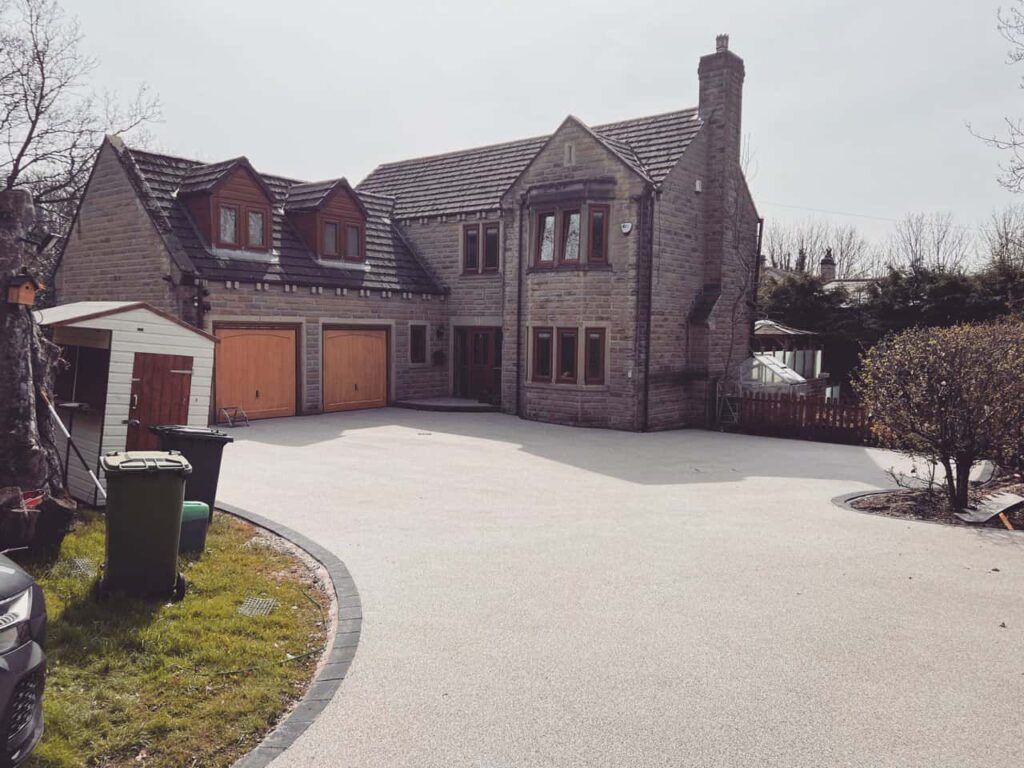Block paving adds elegance, functionality, and kerb appeal to your home. However, over time, even well-laid block paving can suffer from damage caused by weather, heavy use, or improper installation. Here at Nottingham Resin Drives, we’ve prepared this comprehensive guide to help Nottingham homeowners repair damaged block paving efficiently and effectively.
Understanding Common Block Paving Problems
To carry out effective repairs, it’s crucial to recognise common issues:
- Loose Blocks: Usually due to insufficient base preparation or heavy traffic.
- Weed Growth: Occurs when the gaps between paving blocks aren’t properly sealed.
- Sinking Areas: Typically a result of inadequate compaction or water erosion beneath the surface.
- Cracked or Chipped Blocks: Often due to heavy loads or freezing weather.
Tools and Materials You Will Need
Before starting any repair work, ensure you have the right tools and materials ready:
- Replacement paving blocks
- Sand and gravel
- Compacting tool (plate compactor or rubber mallet)
- Chisel and hammer
- Weed control membrane
- Block paving sealer
Step-by-Step Guide to Repairing Block Paving
Step 1: Removing Damaged Blocks
Carefully use a chisel and hammer to loosen and remove damaged blocks, making sure not to damage adjacent ones.
Step 2: Preparing the Base
Clear away old sand or gravel. Ensure the underlying surface is even and compacted, adding more sand or gravel if necessary.
Step 3: Placing New Blocks
Place the new blocks carefully, ensuring they sit flush with existing paving. Adjust sand or gravel levels beneath as required.
Step 4: Compacting and Sealing
Use a plate compactor or rubber mallet to firmly press the blocks into place. Sweep kiln-dried sand into joints and compact again. Finish by applying a suitable block paving sealer.
Tips for Maintaining Block Paving
Regular maintenance is vital for keeping your paving looking pristine:
- Periodically sweep paving to remove debris and organic material.
- Apply weed control treatments annually.
- Inspect regularly and address any small issues immediately to prevent larger problems.
- Re-sand joints and reseal the paving every 2-3 years.
When to Call in the Professionals
While minor repairs can be DIY projects, extensive damage or recurring issues indicate underlying problems requiring professional attention. Here’s when you should consider contacting us at Nottingham Resin Drives:
- Persistent sinking or shifting of blocks
- Frequent weed recurrence despite treatments
- Extensive cracking or chipping indicating foundational issues
Why Choose Nottingham Resin Drives?
At Nottingham Resin Drives, we specialise in providing long-lasting and reliable driveway solutions across Nottinghamshire. Our experienced team:
- Delivers expert assessments and tailored solutions.
- Uses high-quality materials and industry-leading techniques.
- Offers comprehensive aftercare advice to prolong your driveway’s lifespan.
Conclusion
Block paving repairs can significantly enhance your property’s appeal and functionality. However, when facing substantial or persistent issues, professional help can save time, reduce stress, and provide a durable, visually appealing result.
For expert block paving repair and maintenance services, get in touch with Nottingham Resin Drives today. We’re dedicated to transforming and restoring your driveway to its best condition.
Call us on: 0115 6479811
Click here to find out more about Nottingham Resin Drives
Click here to complete our contact form and see how we can help with your driveway needs.
